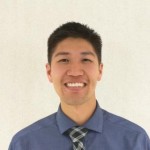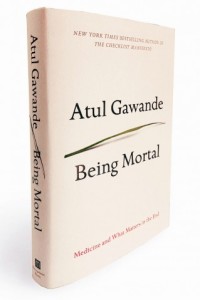January 22nd, 2016
Today’s Medical Care — A Trap for the Sick and Elderly ?
Andrew Ip, MD

Andrew Ip, MD, is a 2015-16 Chief Resident in Internal Medicine at Emory University in Atlanta, Georgia.
One of the great things about serving as chief resident this year is the opportunity to attend wards. Below is a short story about a patient that was admitted to my team for less than 1 hour, but whose impact on me will last the rest of my career:
In November, I had the privilege to take care of Mr. E. Mr. E had an anterior STEMI last summer with a resultant EF of 25%, leading to several heart failure (HF) exacerbations that required hospitalization. When we, the medicine team on call, were asked to admit him in late November for yet another HF exacerbation, my resident astutely noted he was cold and wet. I agreed, and we sent him immediately from the ER to the CCU to receive inotropic support. He never returned back to my team, but stayed in the ICU for more than 30 days. I visited him regularly in the CCU – he was always in good spirits, despite becoming inotropic dependent and undergoing a heart transplant evaluation.
On the 28th day of his hospitalization, a special occasion occurred – his 55th birthday. We had a heart-to-heart, and he expressed his desire to continue to live. I asked him what he meant by that, and he said he wanted to go home and to be with his family. That was ‘living’ for him. He expressed his strong belief in God, and he asked if I could pray with him, to which I agreed. Throughout his 36-day hospitalization, he underwent multiple procedures and diagnostic tests to see if he would qualify for a heart transplant, only to be denied. His hopes to return home and to be with his family were denied as well, as his condition quickly deteriorated with cardiac arrest from ventricular tachycardia (he survived that, however, after 1 shock) and multi-organ failure. Mr. E passed away on the inpatient palliative care floor at our hospital at 4 am on Christmas day, with no family at his bedside.
When I first started medical school, my naivete was that the art of medicine was practiced with the idea that the patient should be at the center of anything we deliver, as I wrote in August. Mr. E did not want to spend his last hours and days alone in the hospital, but that is exactly what happened to him. Why? I think now, 8 years after I started my journey into medical training, I’ve become jaded: I think that, despite what is preached in school and academic hospitals, most healthcare is still delivered with a culture of paternalism.
Perhaps a better way to say it is that medical care for our sick and elderly is a winding maze of never-ending appointments, procedures, treatments – a total trap. What do I mean by this? Once a sick patient is seen in multiple medical/subspecialty clinics, or admitted to the hospital and seen by multiple services, the patient, such as Mr. E, feels like he or she is at the mercy of what the doctor decides is the best course of action. Often, patients may not even realize, due to poor socio-economic status, that they have a voice in their care — an all-too-common scenario at my county hospital.
Another extension of our health care system, nursing homes, is another great example of how we trap our patients, this time the elderly, into an environment that caregivers and families believe is in the patient’s best interest. Often, this results in a total loss of control and alienation of our aging population, which (by the way) will only continue to become older AND healthier (Jagger C et al. Lancet 2015 – NEJM Journal Watch’s post) .
Atul Gawande wrote a fantastic book, Being Mortal, detailing his thoughts and sharing his stories about the perils of aging and modern medical care in today’s world. Topics mainly centered around how the sick and the elderly are treated more like inanimate check-lists or to-do lists, with providers focusing on fixing the disease or caregivers focusing solely on activities of daily living. He eloquently writes that our medical profession seeks to ensure health and survival, rather than “to enable well-being.”
*Please note, the next paragraph is heavily influenced by my recent viewing of the hit Netflix crime documentary Making a Murderer, which I HIGHLY recommend :)*
Recently, I’ve mulled in my head that a great parallel of our current healthcare system ‘trapping’ our sick and elderly once admitted to the hospital is our current judicial system ‘trapping’ an accused defendant who has a criminal past. Just like in healthcare, where many providers ask “how can we fix this disease?” and forget the patient, so do many in the court system ask “how can we convict this killer?” and forget the defendant is still presumed innocent until proven guilty. The medical team in a hospital has powers such as ‘medically holding’ a patient against their will, just like a judge can overrule a defendant’s pleas to throw out illegally obtained evidence. The physically afflicted and the accused – both deserve to have a fighting chance to preserve their well-being and innocence, but both can be trapped in systems that have different agendas.
How do we avoid this trap? I would propose a listen-first, treat-second approach to most of our patients, with shared decision-making being the ultimate goal. This is not a new idea, but certainly patients like Mr. E remind me I have to be much better at empowering my patients and advocating for them.




I recently read a story of a man in his late 70’s with a history of CAD who suffered severe chest pain and hypotension. Fearing another, massive, MI, his physician urged him to be hospitalized. The patient, voicing a deep distrust of academic medical centers, refused hospitalization. He did agree to briefly go to the hospital to undergo a nuclear scan which, at the time, was a new technology. The test confirmed the large anterior MI, but the patient was returned to his home where he soon died in the comfort of his own bed. The name if the man? Tinsley R. Harrison, MD. (as recorded in “Tinsley Harrison, M.D.: Teacher of Medicine” by James A. Pittman, Jr.)
Thanks for sharing your analysis and analogy.
From my memory of acute care medicine as a bedside nurse, and as the daughter of a (thankfully) ambulatory 90 something woman residing still at home, I think the analysis is accurate.
I hope that you have a vehicle to advocate your proposed approach so that it is supported organization-wide.